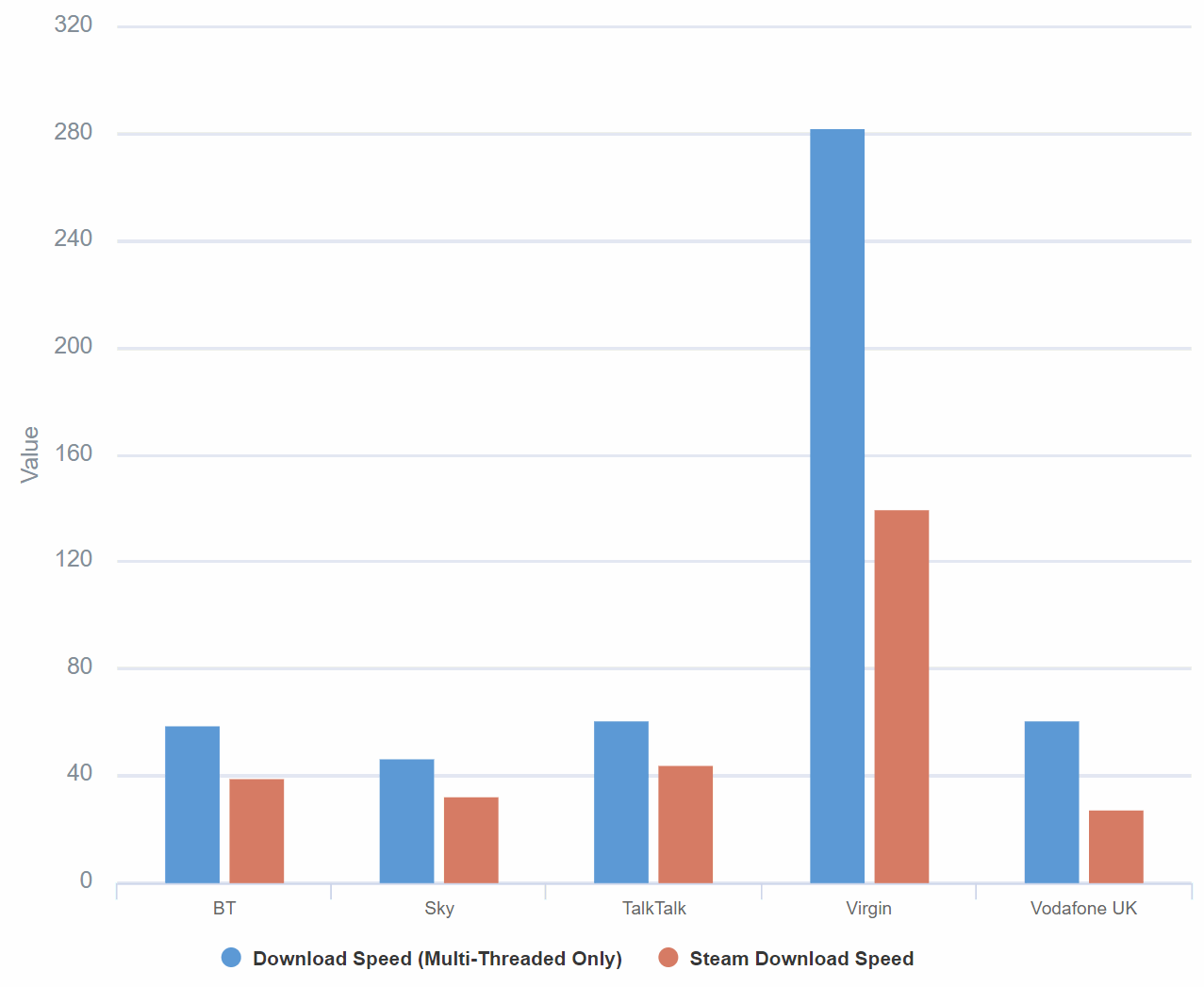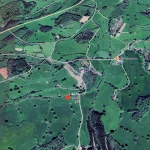Testing UK Broadband Speeds for Downloading PC Games via Steam
Internet speed analyst firm SamKnows has conducted an interesting study, which examines the performance differences of major UK broadband ISPs (BT, TalkTalk, Sky Broadband, Virgin Media and Vodafone) when being tasked with downloading PC games from Valve’s popular Steam digital distribution platform.
Steam was first launched in 2003, albeit initially more as a tool to help keep their most popular games updated (Counterstrike, Half Life etc.), but it soon evolved into a fully-fledged digital distribution platform. Today the combination of high-speed broadband and the demise of physical media means that services like Steam are in more demand than ever and some games are reaching 75GB (GigaBytes) in size.
The platform’s peak network utilisation currently tends to hover near 6Tbps (Terabits per second) and last year around 18% of PC game sales were made using the service (c.$4.3bn in revenue), although we should mention that they also handle titles for MAC and Linux users too. Popular video game platforms like Xbox (Microsoft) and PlayStation (Sony) have similar distribution services.
Advertisement
Broadband ISPs have to be very mindful of such demanding but popular services, particularly as Steam can simultaneously harness multiple different Content Delivery Networks (e.g. Level3, Akamai, EdgeCast, Stackpath), as well as their own CDN. One of the ways it does this is by breaking downloads up into “chucks” via multiple parallel TCP sessions, which can then be sent via several CDNs (useful for avoiding congested paths).
The platform can also adopt a different approach for different countries and may even have special arrangements for certain ISPs. For example, SamKnows states that Steam splits the United Kingdom into two cells – London and Manchester. “Both are primarily served by Valve’s own CDN, with what appear to be backups using Stackpath (in Amsterdam) and Edgecast (in London).”
Luckily in the UK we have quite an open and healthy market for peering between ISPs and content providers, which means that the multiple CDN approach shouldn’t make a lot of difference. As such the main restriction in any performance analysis is likely to be limited to the capabilities of your physical connection and any natural restrictions related to Steam’s own servers.
In choosing to test this (over a 4-day period) the analyst wisely opted to remove the negative impact of older / slower connections, which they achieved by only focusing upon customers with either the top 80Mbps FTTC (VDSL2) tier (c.60-65Mbps average speed) or a 200-350Mbps package on Virgin Media’s cable DOCSIS network.
Advertisement
The sample size of 200 is small but this represents homes where their customised router-based measuring units were installed, which is a costly but also highly accurate way of testing internet connection performance (i.e. it can remove the influence of slow WiFi etc.). The key result is below, which contrasts the normal multi-thread download speed of the connections with those of content downloaded via Steam.
Average DL Speed Over Steam vs Samknow’s Dedicated Servers (Mbps)

The good news is that all of the ISPs were found to have performed similarly. “The Steam measurements for all ISPs recorded 50–70% of the speed of the regular download speed test. This suggests that the Steam CDN can struggle to saturate the link completely at higher speeds. Of course, in terms of absolute speeds, Virgin unsurprisingly rules the roost with their 200Mbps and 350Mbps products (50% of 350Mbps is a lot faster than 50% of 76Mbps!),” said the analyst.
Advertisement
On the other hand it would have been nice to see how Steam managed when testing Gigabit connections, since at present it’s unclear whether the c.140Mbps seen on Virgin Media represents the current average peak capability of Steam’s servers to send data. Meanwhile Vodafone’s FTTC based home broadband service seemed to struggle a bit more than their rivals with the same technology, although a bigger sample size may be required to establish if a trend exists.
Now back to waiting for Half Life 3 🙂 .
Mark is a professional technology writer, IT consultant and computer engineer from Dorset (England), he also founded ISPreview in 1999 and enjoys analysing the latest telecoms and broadband developments. Find me on X (Twitter), Mastodon, Facebook, BlueSky, Threads.net and Linkedin.
« Mobile Operators Call on UK Councils to Help Boost Network Coverage

















































Comments are closed